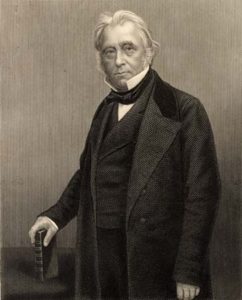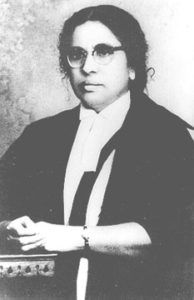It may seem a little bizarre but it’s true that women in India can’t be prosecuted for an offence of adultery. I’ll try to answer this with the help of the discussions, suggestions and recommendations on record. Now first let’s look at the exact definition of Adultery under Section 497 of the India Penal Code:-
Section 497. Adultery –
Whoever has sexual intercourse with a person who is and whom he knows or has reason to believe to be the wife of another man, without the consent or connivance of that man, such sexual intercourse not amounting to the offence of rape, is guilty of the offence of adultery, and shall be punished with imprisonment of either description for a term which may extend to five years, or with fine, or with both. In such case the wife shall not be punishable as an abettor.
For a complete understanding of the offence of adultery, a reading of Section 198(2) of the Code of Criminal Procedure, 1973 is also important, which reads as under:-
198. Prosecution for offences against marriage:
(1) No Court shall take cognizance of an offence punishable under Chapter XX of the Indian Penal Code (45 of 1860) except upon a complaint made by some person aggrieved by the offence:
Provided that— …
(2) For the purpose of sub-section (1), no person other than the husband of the woman shall be deemed to be aggrieved by any offence punishable under section 497 or section 498 of the said Code:
Provided that in the absence of the husband, some person who had care of the woman on his behalf at the time when such offence was committed may, with the leave of the Court, make a complaint on his behalf.
On a careful reading of the above provisions, you can see that Section 497 of the Indian Penal Code perceives a “consensual” sexual intercourse between a man, married or unmarried, and a married woman without the consent or connivance of her husband as an offence of “adultery”. Which also means that the offence of adultery is committed only by a man who has sexual intercourse with the wife of another man, without his consent or connivance, and that the wife is not punishable for being an “adulteress”, or even as an abettor of the offence for which the man can be sent to jail for 5 years.
On a slightly deeper level, it also means that a sexual intercourse between a married or unmarried man, and an unmarried woman or a divorcee or a widow, does not come within the ambit of “adultery”.
You may now feel that this provision seems a bit against the concept of sexual equality. Now Section 497 finds support and strength from Article 15(3) of the Constitution of India, which reads as:-
15. Prohibition of discrimination on grounds of religion, race, caste, sex or place of birth:
(1) …
(2) …
(3) Nothing in this article shall prevent the State from making any special provision for women and children.
(4) …
ADULTERY WAS NOT EVEN AN OFFENCE IN THE FIRST DRAFT
 It is really interesting to note that the offence of “adultery” did not find its place in the first ever draft of the Indian Penal Code prepared under the Chairmanship of Thomas Babington Macaulay a.k.a. Lord Macaulay in the year 1837. His reasons for the same were:-
It is really interesting to note that the offence of “adultery” did not find its place in the first ever draft of the Indian Penal Code prepared under the Chairmanship of Thomas Babington Macaulay a.k.a. Lord Macaulay in the year 1837. His reasons for the same were:-
“We consider whether it would be advisable to provide a punishment for adultery, and in order to enable ourselves to come to a right conclusion on this subject we collect facts and opinions from all the three Presidencies. The opinions differ widely. But as to the facts there is a remarkable agreement.
The following positions we consider as fully established: first, that the existing law for adultery are altogether inefficacious for the purpose of preventing injured husbands of the higher classes from taking the law into their hands; secondly that scarcely any native of the higher classes ever has recourse to the Courts of law in a case of adultery for redress against either his wife, or her gallant; thirdly that the husbands who have recourse in case of adultery to the Courts of law are generally poor men whose wives have run away, that these husbands seldom have any delicate feelings about the intrigue, but think themselves injured by the elopement, that they consider wives as useful members of their small households, that they generally complain not of the wound given to their affections, not of the stain of their honor, but of the loss of a menial whom they cannot easily replace, and that generally their principal object is that the woman may be sent back. Where the complainant does not ask to have his wife again, he generally demands to be reimbursed for the expenses of his marriage.
These things being established, it seems to us that no advantage is to be expected from providing a punishment for adultery. The population seems to be divided into two classes – those whom neither the existing punishment nor any punishment which we should feel ourselves justified is proposing will satisfy, and those who consider the injury produced by adultery as one for which a pecuniary compensation will sufficiently atone. Those whose feelings of honor are painfully affected by the infidelity of their wives will not apply to the tribunals at all. Those whose feelings are less delicate will be satisfied by a payment of money. Under such circumstances, we think it best to treat adultery merely as a civil injury.”
However, the Law Commissioners in their 2nd Report on the Draft Penal Code in 1847, took a different view and observed:
“While we think that the offence of adultery ought not to be omitted from the Code, we would limit its cognizance to adultery committed with a married woman, and considering that there is much weight in the last remark in Note ‘Q’, regarding the condition of the woman in this country, in deference to it, we would render the male offender alone liable to punishment. We would, however, put the parties accused of adultery on trial together, and empower the Court in the event of their conviction to pronounce a decree of divorce against the guilty woman, if the husband uses for it, at the same time that her paramour is sentenced to punishment by imprisonment or fine.”
However, this recommendation by the Law Commissioners was not accepted, and in the 1860, Section 497 as it stands today, was enacted.
LAW COMMISSION OF INDIA SUGGESTED THAT WOMEN TOO SHOULD BE PUNISHED FOR ADULTERY
The Law Commission of India, under the Chairmanship of Mr. K.V.K. Sundaram, in its 42nd Report in 1971, primarily pondered over two issues:
- Should adultery be punishable at all?
- If so, then should the offence be limited to men only?
After much deliberation, the Law Commission came to a conclusion that:-
“The object of such prosecution is seldom to send the offender to jail, that is, if the court will regard the offence as serious enough to merit a sentence if imprisonment. It is more often with a view to come to a settlement with the offender on the mercenary level.”
“Though some of us were personally inclined to recommend repeal of the section, we think on the whole that the time has not come for making such a radical change in the existing position. We however, think that the reason which weighted with the Law Commissioners in the last century in exempting the wife from punishment are by and large no longer valid, and there is hardly any justification for not treating the guilty pair alike.”
With the above observations, the Law Commission of India, recommended that the exemption of the wife from punishment under Section 497 should be removed, and that the maximum punishment of five years prescribed is unreal and not called for in any circumstances and hence should be reduced to two years, and that with these modifications, the offence of adultery should remain in the Penal Code. The recommended revised provision of Section 497 was:-
Section 497. Adultery –
If a man has sexual intercourse with a woman who is, and whom he knows or has reason to believe to be the wife of another man, without the consent or connivance of that man, such sexual intercourse not amounting to the offence of rape, the man and the woman are guilty of the offence of adultery, and shall be punished with imprisonment of either description for a term which may extend to two years, or with fine, or with both.
 However, Mrs. Anna Chandi (the first female Judge in India, former Judge of Kerela High Court, and one of the Members of the Law Commission), in her notes showcased her regret and disagreement with other members on their recommendation regarding the proposed amendment of Section 497. She opined that:-
However, Mrs. Anna Chandi (the first female Judge in India, former Judge of Kerela High Court, and one of the Members of the Law Commission), in her notes showcased her regret and disagreement with other members on their recommendation regarding the proposed amendment of Section 497. She opined that:-
“I think it is the right time to consider the question whether the offence of adultery as envisaged in Section 497 is in tune with our present day notions of woman’s status in marriage.
The Commission discussed this section at some length. The final decision of the majority of the members is that the section should be left as it is, after deleting the provisions which exempts the wife from punishment for adultery.
In my opinion, the recommended amendment would be a retrograde step, which would be difficult to justify.”
She stated that the the reasoning behind the Law Commission’s recommendation is that with the general advancement in the status of women and especially their education, they can now be held responsible for their own actions and so have no further need for any artificial protection and that the idea of equality between men and women in the filed of responsibility for their own actions is progressive, however the recommendations by the Law Commission does not fully reflect this idea. She went on to explain that:-
“The wife being considered the husband’s property, the present provision reserves for the husband the right to move the law for punishing any trespass on it, while not giving the wife any corresponding right to complain against any transgressions on the part of or relating to her husband. Perhaps to make amends for this harsh discrimination, the present section provides that the wife should not be punished along with the trespasser. The removal of this exemption clause does not cause damage to the basic idea of the wife being the property of the husband. On the other hand, it merely restates the idea, and adds a new dimension to it by making not only the trespasser but the property also liable to punishment. This, as noted before, can hardly be considered a progressive step.”
Her suggestion was that Section 497 should be amended to bring out that a person, male or female, who being married, has sexual intercourse with a female or a male, not his or her spouse, without the consent or connivance of such spouse, commits adultery, provided that it shall not amount to adultery unless the marriage had been dissolved by reason of that offence.
The Supreme Court of India too has dealt with the this issue, wherein the constitutional validity of Section 497 of the Indian Penal Code was challenged under Article 32 of the Constitution of India. That in the case of “Sowmithri Vishnu vs. Union of India”[footnote]AIR 1985 SC 1618[/footnote], as being violative of the right to equality as envisaged in Article 14 of the Constitution of India. The basis of challenge was that the section makes an irrational classification between men and women and it unjustifiably denies to women the right given to men. It was also contented that this section confers upon the husband the right to prosecute the adulterer but does not confer any right upon the wife of the adulterer to do so. That the Supreme Court of India rejected these contentions and upheld the constitutionality of Section 497, while observing that “it is for the Legislature to consider whether section 497 should be amended appropriately so as to take note of the ‘transformation’ which the society has undergone”.
Taking a cue from the 42nd Report, the Law Commission of India, under the Chairmanship of Mr. Justice K.J. Reddy, in its 156th Report in 1997, recommended that the phraseology of Section 497 has to be modified on the following lines to reflect the concept of equality between sexes:-
Section 497. Adultery –
Whoever has sexual intercourse with a person who is, and whom he or she knows, or has reason to believe, to be the wife or husband, as the case may be, of another person, without the consent or connivance of that other person, such sexual intercourse not amounting to the offence of rape, commits adultery, and shall be punished with imprisonment of either description for a term which may extend to five years, or with fine, or with both.
That the Law Commission of India also recommended that if Section 497 is amended on the lines indicated above, then sub-section (2) of Section 198 of the Code of Criminal Procedure, 1973 would have to be suitably amended too.
Unfortunately, since then, the intent to finally amend Section 497 to reflect an approach based on equality has not made any progress. Once can only hope that this issue is taken up by the Law Commission again, and also the Parliament by way of an amendment bill.
- Disclaimer: This article is not a substitute for professional legal advice. This article does not create an attorney-client relationship, nor is it a solicitation to offer legal advice.
Follow On:
If you like what I write, please spread the word by sharing it on your social networks as well. Thank you.
